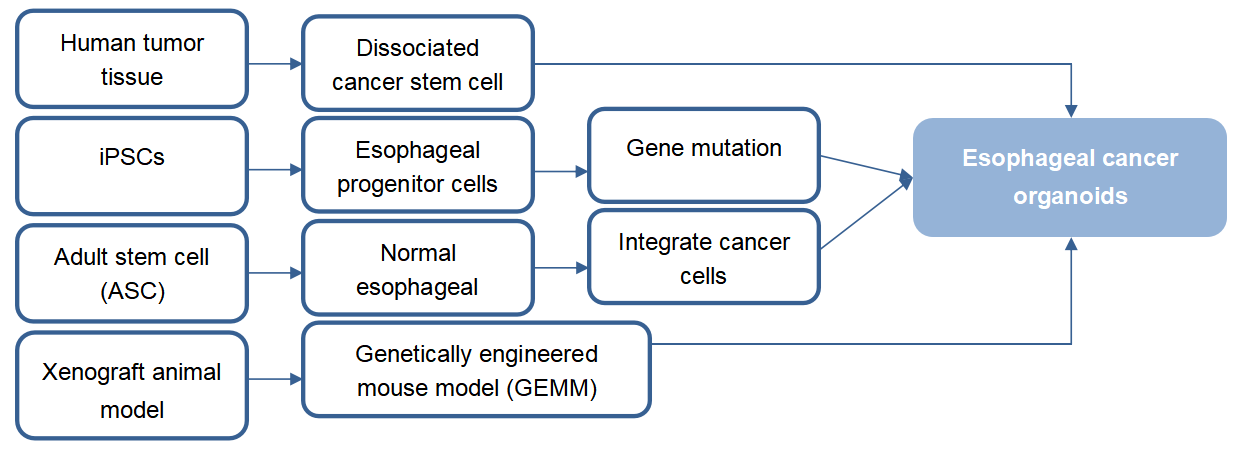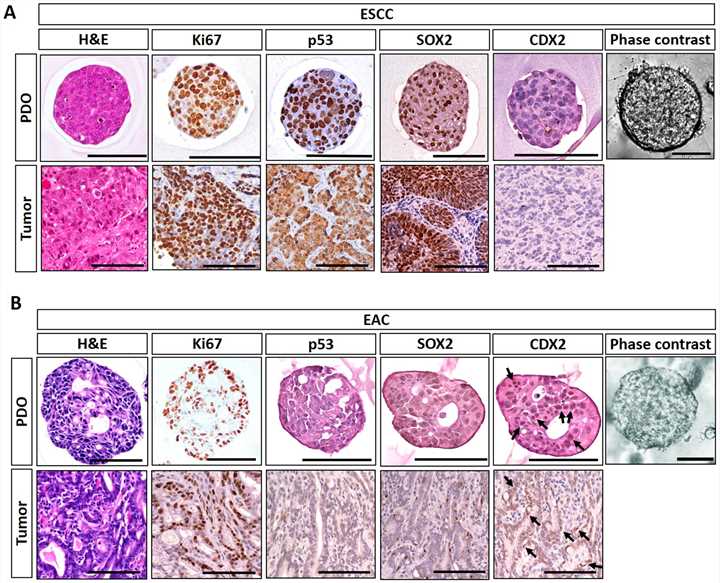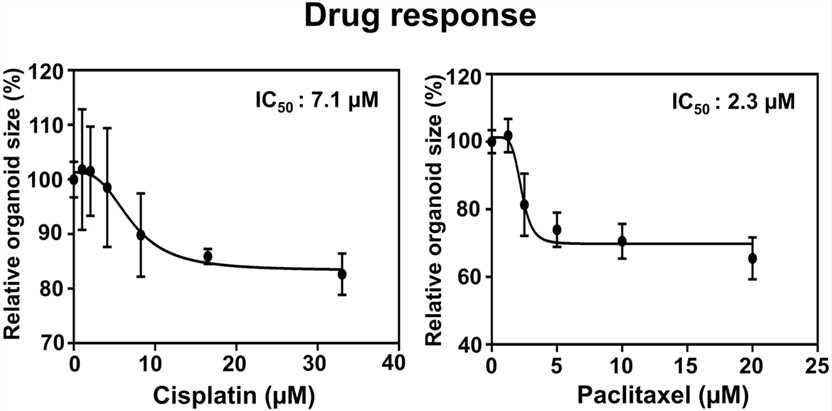All products and services are For Research Use Only and CANNOT be used in the treatment or diagnosis of disease.
Esophageal cancer ranks as the sixth malignant neoplasm that leads to death worldwide, and the incidence rate of this cancer will elevate to 35% in the years to come. Clinical models of cancer are urgently needed to study the mechanism of tumorigenesis and develop potential therapies for treatment.
Organoid is a self-reorganized 3D culture system that recapitulates the structure of tissue and inherits the intrinsic features of tumor cells. Organoids are physiologically related models that are useful for our understanding of health and disease. With innovative stem cell culture techniques and extensive experience in cancer study, Creative Biolabs offers high-efficiency service for Esophageal Cancers organoids development and various applications for tumor study.
Esophageal organoids can be generated from different stages of the tumorigenesis process, from normal to neoplastic tissue. Different histological subtypes of esophageal are included.

3D esophageal organoids can be generated from adult stem cells (ASC), tumor epithelium, and induced pluripotent stem cells (iPSCs), with individual advantages and limitations.

The medium formulation is crucial for the successful culture of cancer organoids and influences the recapitulation of the structure and function of organoids.
As a world-famous cell therapy provider, Creative Biolabs has a bank of CAR products for various targets of cancers and is devoted to helping clients explore specific biomarkers of tumor cells. If you want to develop CAR-T products for esophageal adenocarcinoma and use them for cancer organoid tests, please refer to our one-stop CAR-T construction service and CAR-T-related products.
 Fig.1 Histological characterization of ESCC and EAC with matched organoid culture. (Karakasheva, et al., 2020)
Fig.1 Histological characterization of ESCC and EAC with matched organoid culture. (Karakasheva, et al., 2020)
 Fig.2 Drug response of EAC organoids is measured by size alteration. (Karakasheva, et al., 2020)
Fig.2 Drug response of EAC organoids is measured by size alteration. (Karakasheva, et al., 2020)
Creative Biolabs offers well-characterized cancer organoids-based CAR-Tin vitro efficacy test platform for clients with cost-effective prices and timely reports. Please contact us and get more detailed information.
References
For any technical issues or product/service related questions, please leave your information below. Our team will contact you soon.
 NEWSLETTER
NEWSLETTER
The latest newsletter to introduce the latest breaking information, our site updates, field and other scientific news, important events, and insights from industry leaders
LEARN MORE NEWSLETTER NEW SOLUTION
NEW SOLUTION
CellRapeutics™ In Vivo Cell Engineering: One-stop in vivo T/B/NK cell and macrophage engineering services covering vectors construction to function verification.
LEARN MORE SOLUTION NOVEL TECHNOLOGY
NOVEL TECHNOLOGY
Silence™ CAR-T Cell: A novel platform to enhance CAR-T cell immunotherapy by combining RNAi technology to suppress genes that may impede CAR functionality.
LEARN MORE NOVEL TECHNOLOGY NEW SOLUTION
NEW SOLUTION
Canine CAR-T Therapy Development: From early target discovery, CAR design and construction, cell culture, and transfection, to in vitro and in vivo function validation.
LEARN MORE SOLUTION